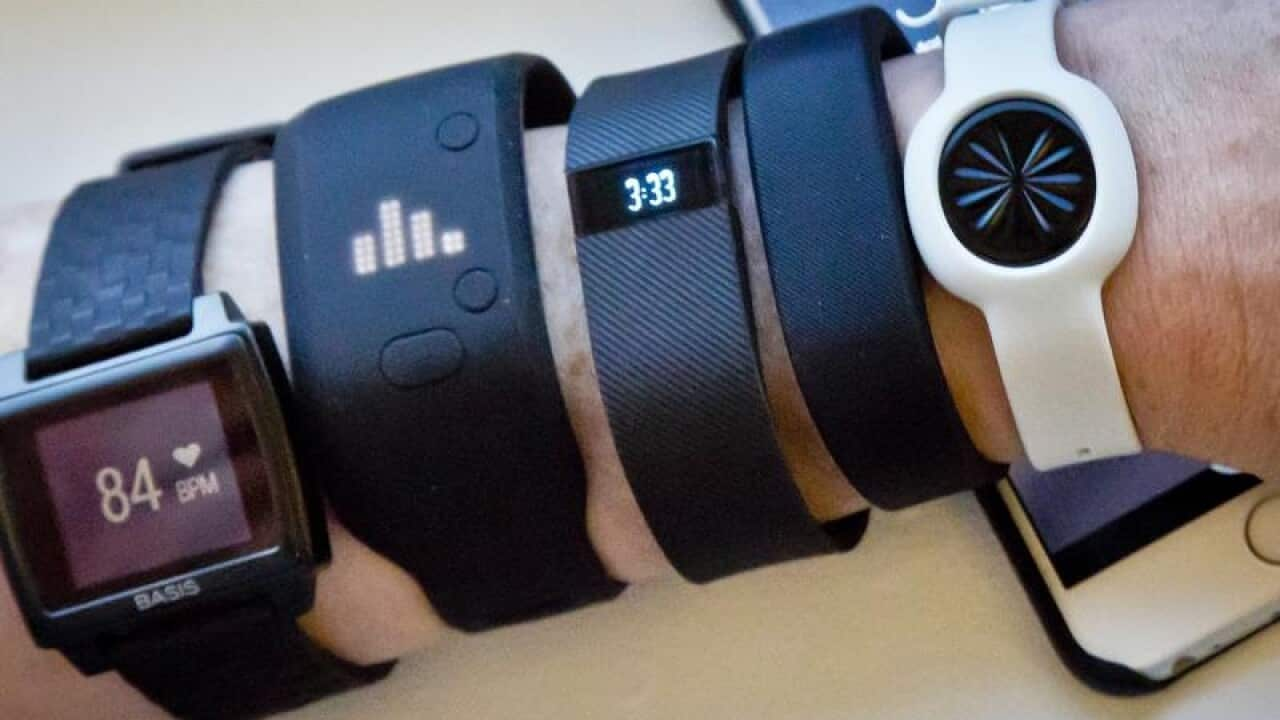A weekly round-up of news affecting your health.
FITNESS TRACKERS
Fitness trackers can vary in accuracy depending on where they're worn and how fast you move, a study has found.
The University of NSW research, published in the Gait & Posture journal, tested the step count accuracy of five monitors worn as recommended on the waist or around a wrist while the wearer walked, jogged and ran on a treadmill.
Across gait speeds, waist-worn devices were more accurate than those on the wrist. But some monitors proved less accurate at slower walking speeds, undercounting steps by as much as 13 per cent.
Exercise physiologist Dr Belinda Parmenter says placement and activity type are important when choosing a tracker to join the 10,000 steps a day trend or for something more serious.
"Some people are using these devices because they've had a heart attack or they've been diagnosed with cardiovascular or another chronic disease where health recommendations are to walk," she said.
BACK PAIN
Researchers want to reduce lower back pain by retraining the way we process pain.
Dr Melissa Day, from the University of Queensland's School of Psychology, says her group is offering an eight-week course to patients interested in non-drug treatments that include mindfulness, meditation and cognitive therapy.
"Living with chronic low back pain leads to the brain being re-wired over time, which gradually sensitises the individual to the pain and results in worsening long-term outcomes," she said.
"Psychological treatments have been shown to reverse these neurological changes, increase brain volume and improve pain intensity, disability, mood, sleep and other functional domains."
They could complement traditional therapies such as opioid medications for some patients or perhaps replace them for others, Dr Day said.
HEART DISEASE
Melbourne researchers have discovered a genetic link to an increased risk of heart failure in patients with type 2 diabetes.
It's hoped the discovery will lead to preventative treatment.
Left ventricular hypertrophy LVH, a thickening of the wall of the heart's main pumping chamber is common in type 2 diabetes and can lead to heart failure.
Led by University of Melbourne Senior Research Fellow Dr Sheila Patel and Austin Health general physician Professor Louise Burrell, a study followed 318 people with type 2 diabetes for 5.6 years, including 22 who were admitted to hospital with heart failure.
It found that a particular genetic variant in the Kruppel like factor 15 gene (KLF15) was associated with LVH.
While more research is needed, Dr Patel says the work could mean in the future that type 2 diabetes patients with this gene variant could be screened for heart failure using a echocardiogram or an electrocardiogram (ECG).
"Early identification by using a simple test such as genotyping may help to optimise treatment in those with the highest risk earlier and prevent the development of heart failure," Dr Patel said.
TAI CHI
Tai chi may reduce the rate of falls in older people by 43 per cent and falls causing injury by 50 per cent, a research review has found.
Dr Rafael Lomas-Vegas from Spain's University of Jaen and his colleagues looked at nearly 900 studies and found 10 showing high-quality evidence of the benefits of the ancient Chinese practice.
Study participants did one-hour sessions one to three times a week over 12 to 26 weeks, they reported in the Journal of the American Geriatrics Society.
SAFE SLEEP
Mothers responded more to regular emails and text messages about safe sleep practices for their newborns than other interventions, US research shows.
The study of 1600 mothers, published in JAMA, found those who got the emails and texts were more likely to stick to the advice that included the appropriate sleep position and not using soft bedding for their infants.
The mobile health intervention was part of efforts to further reduce infant deaths following a national public awareness campaign that halved the SIDS rate in the US.

